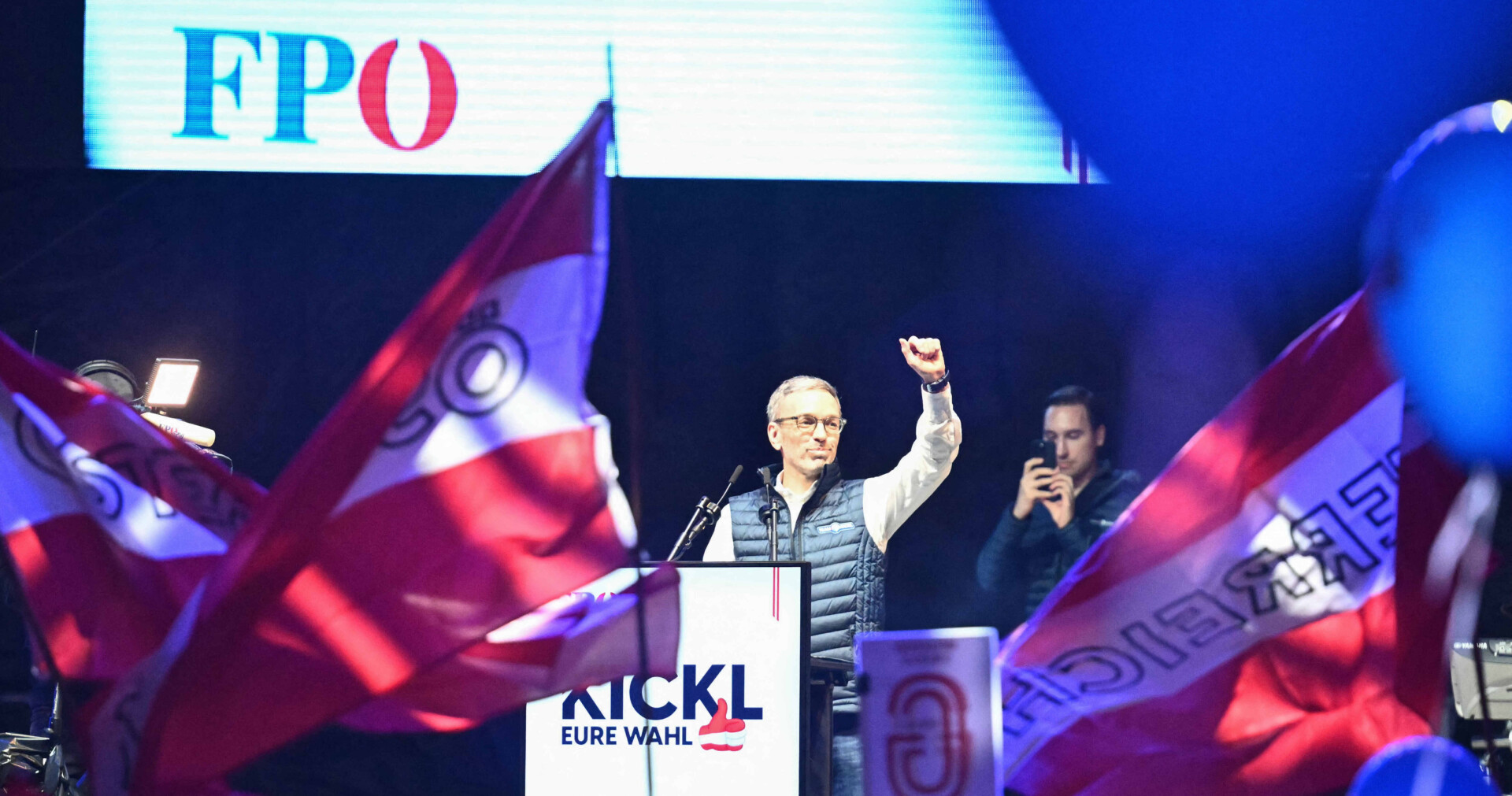In Austria, it has become almost natural law since the first post-war elections that either the conservative People’s Party (ÖVP) or the Social Democratic Party (SPÖ) win the federal elections. With a few exceptions, these parties tend to form coalition governments, making Austria a de facto two-party state that is either governed slightly centre-right or slightly centre-left.
But tonight, this law came to an end: the hard-Right Freedom Party (FPÖ) made history, coming in first with over 29% of the vote, followed by the ÖVP with 26%, while the Social Democrats continued their slow descent into irrelevance with 21%.
Since it is unlikely that anyone will enter into a shared government with the FPÖ, it looks like the Conservatives and the Socialists will either be joined by the Greens or the Liberals — both of which remained below 10% in the election — creating another first in Austrian history: a coalition government of more than two parties. The FPÖ finds itself in a similar situation to the AfD in Germany, where despite growing popularity with voters, the likelihood of being in government is getting ever smaller.
The other parties accuse the FPÖ of pandering to conspiracy theories and being too soft on Vladimir Putin — an accusation that is not entirely without merit. The party has, for example, suggested fixing holes in the budget by cancelling support for Ukraine. But even so, it is not clear whether this position hurt them with the voters.
Overall, the FPÖ’s success can best be explained by three factors. The first is migration. As an unapologetically nationalist party that does not shy away from discussing “remigration”, the party always had a strong base among those who prefer closed borders. Secondly, the Covid policies of the Conservative-Green coalition that has run the government since 2019 were some of the strictest measures in Europe. In response, the FPÖ, under its leader, Herbert Kickl, quickly seized the opportunity to become the most vocal critic of these policies. Although for many people, Covid is a faint memory, some of the most vocal opponents of the pandemic policies likely became staunch supporters of the FPÖ. And finally, voter mobilisation: with almost 80% voter turnout, it seems plausible that previous non-voters also switched to the FPÖ.
It remains to be seen whether excluding the strongest party in parliament from governing will weaken the FPÖ, but one thing is clear: there is growing frustration with the status quo across the country. Indeed, six out of 10 Austrians feel dissatisfied with the direction of the country. Freezing the FPÖ out of office could drive this number up.
The FPÖ has always been strongest as an opposition party, and it is not as if the other parties have much love for each other. There is no precedent for a triple-coalition, and the Social Democrats have shifted significantly to the Left, turning them into difficult potential partners for the Right-of-centre liberals and conservatives. A coalition that is only held together by the desire to keep another party out of power, but without an actual plan or programme, could provoke even more ire from the voters. By the next election, support for the FPÖ could be even higher.











Join the discussion
Join like minded readers that support our journalism by becoming a paid subscriber
To join the discussion in the comments, become a paid subscriber.
Join like minded readers that support our journalism, read unlimited articles and enjoy other subscriber-only benefits.
Subscribe